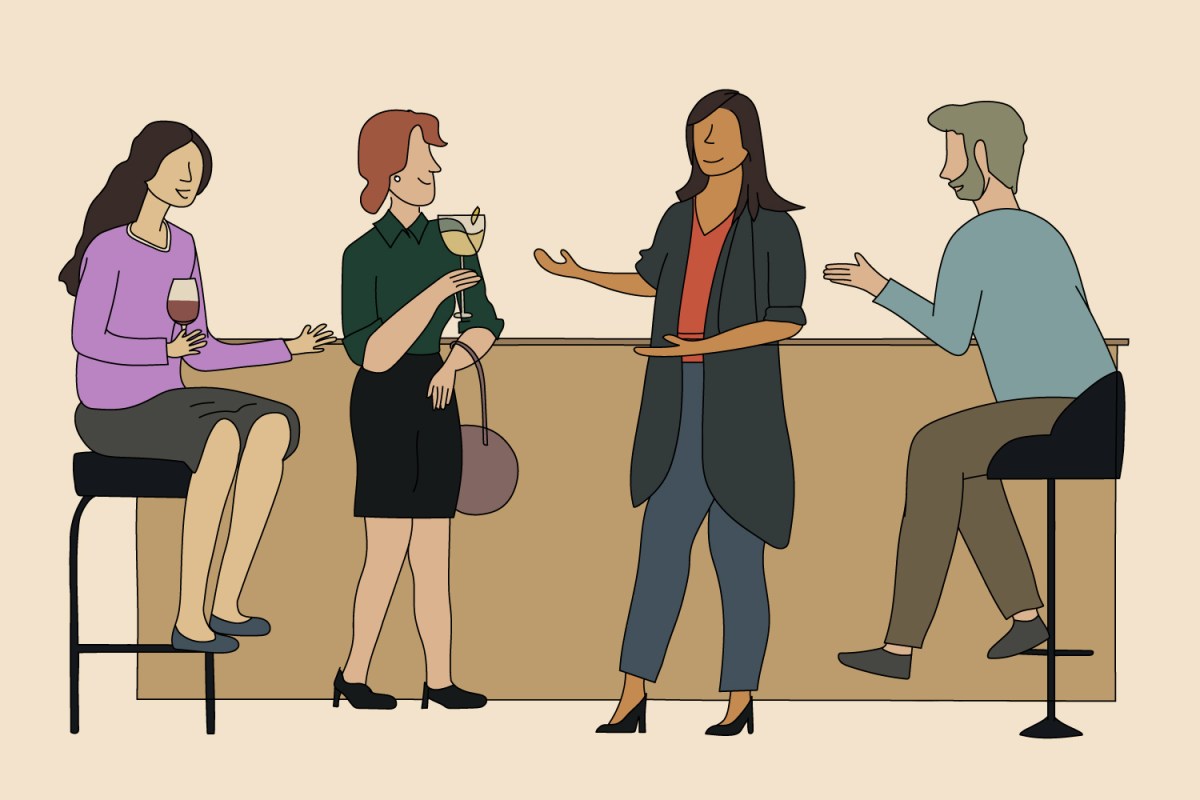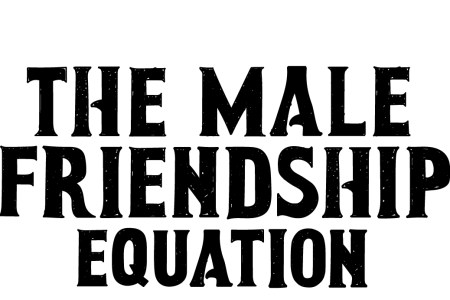During the month of April, we’re publishing a series of interviews, essays, advice columns and reported features about the male friendship crisis in the U.S., a particularly troubling slice of the country’s larger loneliness epidemic. There’s no one-size-fits-all solution, so we’re breaking it down from all angles in The Male Friendship Equation.
There’s a hilarious line in a season 8 episode of The Simpsons that I’m going to take out of context. In the show, Marge is trying to convince Homer that his “festive” new friend John (John Waters) is gay.
Marge: “He prefers the company of men!”
Homer: “Who doesn’t?”
It’s an excellent line (great episode, too, and go ahead and go down a YouTube Simpsons rabbit hole for the next 20 minutes. I’ll wait.). But it’s also inaccurate, at least when it comes to me and friendships.
I prefer the company of women. Over the years I’ve found it easier to make lasting platonic relationships with females, whether through work, social events, friends of friends, etc. Even when I’ve outwardly pined for close male friendships, I’ve been hesitant to create those connections.
While I’m not alone on this feeling, I’m probably in the minority. “It’s widely attested to in data that 75% of men’s extended social networks — that’s 100-200 people in all — are male. And for women it’s the same percentage for other females,” says Robin Dunbar, an Emeritus Professor of Evolutionary Psychology at the University of Oxford and author of Friends: Understanding the Power of Our Most Important Relationships. “This number is constant from the ages of 5 to 85. In general, I think men just prefer men’s company, and women prefer women’s company. You see this all the time: conversations invariably end up segregating by sex once they get above four people. Check out any cocktail party.”
I’m an outlier? Color me intrigued. Besides Prof. Dunbar, I spoke with a dozen relationship experts, mental health professionals and academics with a background in male interactions about this rift between my wish for close male friendships and my overall preference for female companionship. I tried to keep the questions as broad as possible, noting that my background (as a Gen X straight white cis male living in a large city) will obviously not apply to all men.
Are men missing something by not being proactively friendly with other men?
It turns out male friendships are more than just bro-ing out. “There is research to suggest that male-to-male friendships also offer certain well-being benefits in ways that are specific to these pairs,” explains Sarah Jeffries, Mental Health First Aid Trainer – Psychology (MSc) at Mental Health First Aid Course. “Male-to-male friendships can be thought of as offering a form of camaraderie, mutuality and emotional providing distinct from friendships between men and women, or relationships with wives or lovers. Men who do not make space for such friendships therefore might be missing out on some unique forms of support.”
And Niels Bohrmann, an accountability coach, actually offered a more positive outlook. “Ideally, you want to be friends with both men and women,” he says. “However, I would argue you’re more likely to miss out if you are only friends with men. We crave that which is different from us, not that what we already know. Being friends with women can provide that.” (Note: I probably have a very different worldview from Bohrmann — I’m not into polyamory or karate — but I sought a wide range of opinions and viewpoints.)
Why would some men prefer the company of women as platonic friends?
“Some men long for the communication style of women which is often more face-to-face than men’s shoulder-to-shoulder styles of communicating, where we communicate by doing something,” says Geoffrey Greif, a professor at the University of Maryland School of Social Work and author of Buddy System: Understanding Male Friendships. “Women often feel more comfortable expressing feelings, something that some men long for but may be uncomfortable asking for from other men who may not know how to respond.”
“Expressing emotions openly can be daunting, especially when fearing judgment from other men or societal expectations of masculinity,” adds Dr. Shaakira Stewart, a psychologist and mental health/wellness advocate. “As a result, some men may gravitate towards female friendships as they perceive them to be more accepting and understanding of emotional expression.”
The Male Friendship Equation: Stories, Interviews and Advice During an “Epidemic of Loneliness”
American men are in the midst of a friendship crisis, so we’re turning our attention to these all-important platonic relationshipsDoes sexuality play a role or alter the friendship equation?
Admittedly, there are several factors at play here, including the sexual preferences of both the men and the women in question. “While sexuality may influence friendship dynamics, the preference for connections with the opposite gender often transcends sexual orientation,” argues Dr. Stewart. “Regardless of sexual identity, men may feel more at ease forming friendships with women due to underlying fears or past traumas related to male relationships. This inclination towards female friendships may stem from a desire for a non-judgmental environment or a reluctance to confront unresolved emotional issues within male-centric social circles.”
“Sexuality might impact the dynamics of friendships [with straight men and women],” says Jeffries. “Gay men and their friendships with women are free from such tensions. But whatever the sexuality of a group of friends, the essentials remain those of friendships: emotional closeness, shared interests and respect.”
What might be holding men back from being friends with other men?
“Men may be unsure how to pursue a friendship with a man,” explains Prof. Greif. “Men don’t like to appear needy, especially around other men, and sometimes in friendships, men have to be vulnerable. We are not socialized to be vulnerable around other men; we are more often socialized to be vulnerable around women when we are young – teachers and our mothers.”
And it turns out society is to blame. “Society can dissuade men from being fully open with other men, and from forming intimate friendships,” adds Jeffries. “Threats to adult male friendships can arise from toxic stereotypes that link open emotionality to weakness and gender nonconformity.”
What do women offer as friends (for men) that other men don’t?
“Women often provide a unique source of emotional support that some men may find lacking in their relationships with other men,” says Dr. Stewart. “Female friendships are frequently characterized by a willingness to engage in deep conversations, offer empathy, and provide a non-judgmental space for emotional expression.”
Interestingly, it’s Prof. Dunbar who points out that men who prefer female companionship aren’t necessarily making their lives easier. “Friendships with women offer a calmer social environment and it’s less competitive,” he says. “But both men and women’s conversational styles are very different. So a lot of adjustment has to be made both ways.”
In general, men being close friends with women can be beneficial for, well, everyone. “You’re getting different views of the world — and insight into women in general,” says Prof. Greif. And that’s insight all men — no matter their friends — truly need.
The Charge will help you move better, think clearer and stay in the game longer. Subscribe to our wellness newsletter today.


























